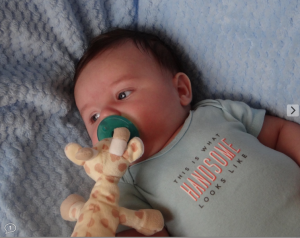
Podcast: Play in new window | Download
Subscribe: RSS
Internal dialogue is really about keeping the story moving and explaining things to the reader that the character knows, or why the character is doing what they’re doing, and doing it without actually voicing it. It allows you to keep it short and punchy. — Taylor
Steve sat at his desk, fingers poised over the keyboard, early morning sunlight reflecting off the monitor’s blank page. Sweat dampened his forehead. The first sentence was hardest. Inner dialogue…internal dialogue… talking… words… speech. Even weekly podcast show notes needed a beginning. Get it started, though, and the rest would come. He just needed the right…
A beep drew his attention to the bottom of the screen. Skype? Yes. He’d sent Taylor an email asking for title suggestions. A title would make the challenge easier. He switched on the microphone, slipped headphones over his ears, and powered up the volume. “Good morning.”
 Today’s show is the first in a series on dialogue, with internal dialogue being our primary topic today, and those two paragraphs above, written in 3rd person, is a quick, tongue in cheek way of demonstrating the topic.
Today’s show is the first in a series on dialogue, with internal dialogue being our primary topic today, and those two paragraphs above, written in 3rd person, is a quick, tongue in cheek way of demonstrating the topic.
In previous episodes, Taylor has mentioned using thoughts, or internal dialogue as a tool for adding depth to our characters, so we’re devoting an entire show to the topic. We’ll discuss different reasons for using internal dialogue and share some examples along the way.
Near the end, you’ll hear Taylor mention how great it would be to have real examples to work from, so if you’ve got a troubling section of internal dialogue you’re dealing with, please sent it along. We’d love to use it as source material for a future show, and you’ll get Taylor’s specific thoughts on possible ways of improving the writing.
 During our pre-show chat, we discuss Taylor’s trip to see Jason Bourne and some three-month birthday pictures from my adorable (and handsome) grandson, Wyatt. And yes, that IS what handsome looks like!
During our pre-show chat, we discuss Taylor’s trip to see Jason Bourne and some three-month birthday pictures from my adorable (and handsome) grandson, Wyatt. And yes, that IS what handsome looks like!
Thanks so much for joining us again this week.
If you have questions or suggestions for future shows, we’d love to hear from you. You can leave your suggestions as comments or find our contact information, including our Hotline Number for listener question on the Connect page.
If you enjoyed this episode, please share it using the social media buttons you see on the left of the post.
Also, please leave an honest review for THE TAYLOR STEVENS SHOW Podcast on iTunes!
Ratings and reviews are extremely helpful and mean a great deal to us. They matter in the rankings of the show, and we read every one of them.
And finally, don’t forget to subscribe to the show oniTunes or Stitcher to get automatic updates.
sorry, i don’t have any words to workshop, but as far as sandford goes – there’s an afterword to one of the earlier books (around 8 or 9, maybe, at least in the audio version) where he goes into some detail about how he came (and continues) to write the prey books. one of the things he said that stuck with me was that the villain was the key to conceiving and carrying out any given book in the series, and how well it works.
after all, lucas (or bosch or reacher or whomever) is going to do what he’s going to do, and we the readers pretty much know what that is (and that’s part of the pleasure, of course). the villain is the perhaps the key varying element, however the book starts.
i know you two talked about villains in a previous episode, so there’s no real fodder here, but, well, mentioning anyway :).
Thanks, Karl – You make a great point, and there may actually be some fodder there for a future show.
I gather you listen to the Davenport series on audio. I started listening to them several years ago and the narrator is so perfect for the series that I always listen, rather than read the new books. Like Hillary Huber and the Vanessa Michael Munroe series, Richard Ferrone is perfect for the Prey series.
I 100% agree with that assessment, Karl, Sandford totally nailed it–and quite succinctly to boot. Thanks for passing that on!
I’ve really started noticing the overuse of “I” in first person narration. One of the problems I have with it is that it makes the narrator seem like a narcissist. It makes it harder to like them. There’s a huge difference between “I’m six-foot-four, handsome and square-jawed” and “he was six-foot-four, handsome and square-jawed.” Both sentences still suck, but one sucks of narcissism.
Excellent observation, Bruce. For me, it’s even more jarring in audiobooks. For some reason, I don’t notice it as much when reading, but when it’s being read aloud, it’s like a bell ringing with each unnecessary “I.”
Absolutely agree, Bruce. My experience in first person is a bit limited as all of my published works are written third person. But there is a partially finished first person work sitting on my drive and I’d venture that writing in first person and avoiding as many “I” as possible is a really good exercise in also avoiding overuse of “he” and “she” — but without a doubt, it’s more forgivable in the third person. You think this is why so many author bios are written third person? Hee hee hee.
Two of the places I willingly accept first person narrations are in confessions of a crime and unreliable narrators.
One of those end of the millennium lists ranked “Lolita” the fourth best novel written in English during the twentieth century.
Look at how many times Nabokov uses “I” in this internal monologue. I try never to think that English was his second language or I’d just give up writing altogether.
“Lolita, light of my life, fire of my loins. My sin, my soul. Lo-lee-ta: the tip of the tongue taking a trip of three steps down the palate to tap, at three, on the teeth. Lo. Lee. Ta. She was Lo, plain Lo, in the morning, standing four feet ten in one sock. She was Lola in slacks. She was Dolly at school. She was Dolores on the dotted line. But in my arms she was always Lolita. Did she have a precursor? She did, indeed she did. In point of fact, there might have been no Lolita at all had I not loved, one summer, an initial girl-child. In a princedom by the sea. Oh when? About as many years before Lolita was born as my age was that summer. You can always count on a murderer for a fancy prose style. Ladies and gentlemen of the jury, exhibit number one is what the seraphs, the misinformed, simple, noble-winged seraphs, envied. Look at this tangle of thorns.”
What a hack ; )
I don’t do well without actually seeing the participants. Tried to view and only got audio. A written interview might help if available.
Hi, Andre – Thanks for sharing your thoughts. Our show is audio only for now, but you’ve triggered the thought that adding a video component would be useful for those who prefer to see the participants.